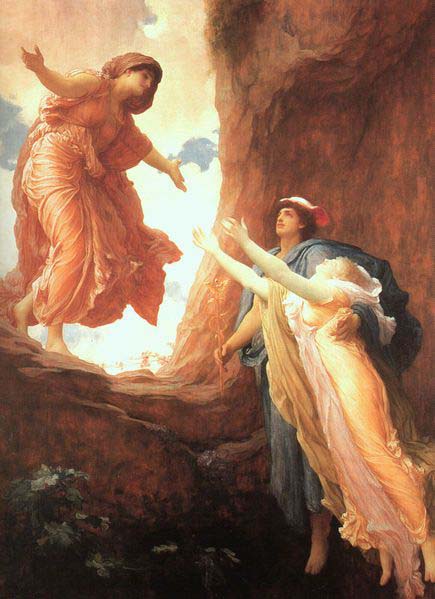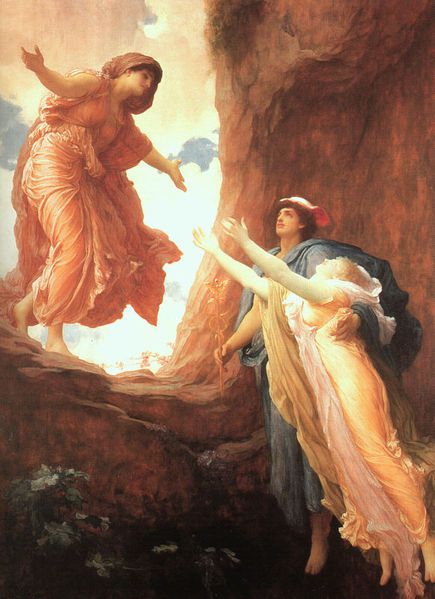Psychotherapy and Renewal: Persephone’s Big Comeback

There’s a lot of truth for case studies in the Greek myth of Persephone and it’s all tied up with the yearly renewal of the seasons. Persephone, a vegetation goddess, and the daughter of the harvest goddess Demeter, was kidnapped and ravished by Hades, the king of the Underworld, and taken to live in his realm.
Demeter, so distraught at her disappearance, refused to let crops or vegetation grow anymore until her daughter was returned. The gods finally prevailed on Hades, who agreed to let her go. However the all-wise Fates had decreed that anyone who consumed the food of the underworld was destined to stay there for eternity. Alas, wiley Hades had persuaded Persephone to eat 3 puny pomegranite seeds. And so Persephone must spend part of the year in the Underworld, a time of barreness, and vegetation would flourish again only when she was re-united every year with Demeter above ground.
This is quite a myth to explain the origin of the seasons. Here in Canada, after the long barren winter, we all feel a little like I imagine Persephone would, as she was released from the earth. Released back into life!
The profound truth of the Persephone myth also conveys a deep meaning for our own psychological journey.
The Persephone myth conveys a natural movement in psychological life For Persephone, it is only as she is detached from her familiar world, and descends to the Underworld that she can bring the blessing and the gift of the seasons, of new green life, and fertility.
My experience is that it is like that in the lives of my clients and in my own life, also. Sometimes the encounter with life’s circumstances and with the unconscious can seem like a sudden plunge into darkness and descent into the underworld. But the underworld has its own gifts that it brings. Only those who can accept those gifts, and “eat the food of the underworld”, can bring the gift of life and fertility back to the “surface world” of their everyday lives. In the encounter with the depths in ourselves, including our unconscious, we travel Persephone’s way, and return to our everyday life with the green lushness of renewed outlook and vitality.
In the video below, the great Brazilian jazz stylist Antonio Carlos Jobim sings his wonderful song “The Waters of March” at the 1986 Montreal Jazz Festival. Lush and full of feeling, this wonderful music captures the enormity of the renewal of Spring that we all sense at this time of year. May we find that same sense of renewal through the encounter with our own deepest selves.
A stick, a stone, it’s the end of the road
It’s the rest of a stump, it’s a little alone
It’s a sliver of glass, it is life, it’s the sun…
…It’s a beam it’s a void, it’s a hunch, it’s a hope
And the river bank talks of the waters of March
It’s the end of the strain
The joy in your heart
Finding Renewal
Both Persephone’s descent into the underworld and the renewal of spring symbolize aspects of the psychotherapeutic process. Often for renewal, it is important to enter into the depths, and to encounter the more hidden parts of our own existence, and our own experience of life. The journey may well be demanding, and it is the role of the /a-midlife-transition to guide the individual toward renewal, and the deep rewards of the journey. There’s no better time to start than now.
As always, I welcome your inquiries and comments.
Wishing you the gifts of renewal on your journey to wholeness,
Brian Collinson, Psychotherapist & Jungian Analyst
[cta]
1-905-337-3946
PHOTO CREDIT: Frederic Leighton, 1st Baron Leighton (1830–1896). This work is in the public domain.
VIDEO CREDIT © 1986 Antonio Carlos Jobim and Koch International
© 2011 Brian Collinson

